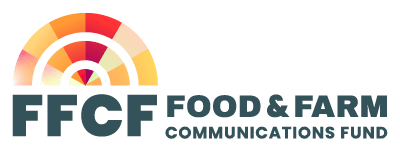FFCF supports community-led processes where communities identify and initiate their own solutions to economic, social and environmental issues within food and agriculture to build healthy, economically viable communities. We believe that by supporting community-controlled economies, people will come before profit. Forty-six percent of our ten-year portfolio reflects grantee partners fostering community economic power for and by those most impacted by systemic inequities. Our earliest support was for the Mid-Atlantic and South East based Common Market to tell the stories of local farmers and sustainable food production values to consumers at retail outlets, participants in direct-to-consumer programs and decision makers at large institutions, corporations and in government. The following two grantee partners further exemplify inclusive economic models.
Communities in Partnership (CIP), in Durham, NC. organizes and cultivates long-term residents, especially residents of color and low wealth, to work towards racial, economic, and social liberation. FFCF has supported their food sovereignty work which includes the Old East Durham Market, which sells produce and protein boxes at a mark-up to Durham residents with higher income. The boxes feature produce and products from Black and Brown farmers and The Market generates revenue for their Community Food Cooperative, which provides over 950 families approximately $500 per year of essential food items. CIP also created the Thriving Communities Fund, a mutual aid network for local food-based small business owners providing micro-grants to sustain operations through disaster.
Artisan Grain Collaborative is an upper Midwest regional grainshed built upon regenerative agriculture practices that steward the health of communities, local economies, and natural resources. FFCF has supported the effort to develop first-person storytelling with farmers, processors, and other makers to educate stakeholders on the interwoven relationships necessary for community resilience, and opportunities for deeper connection between rural and urban communities.
